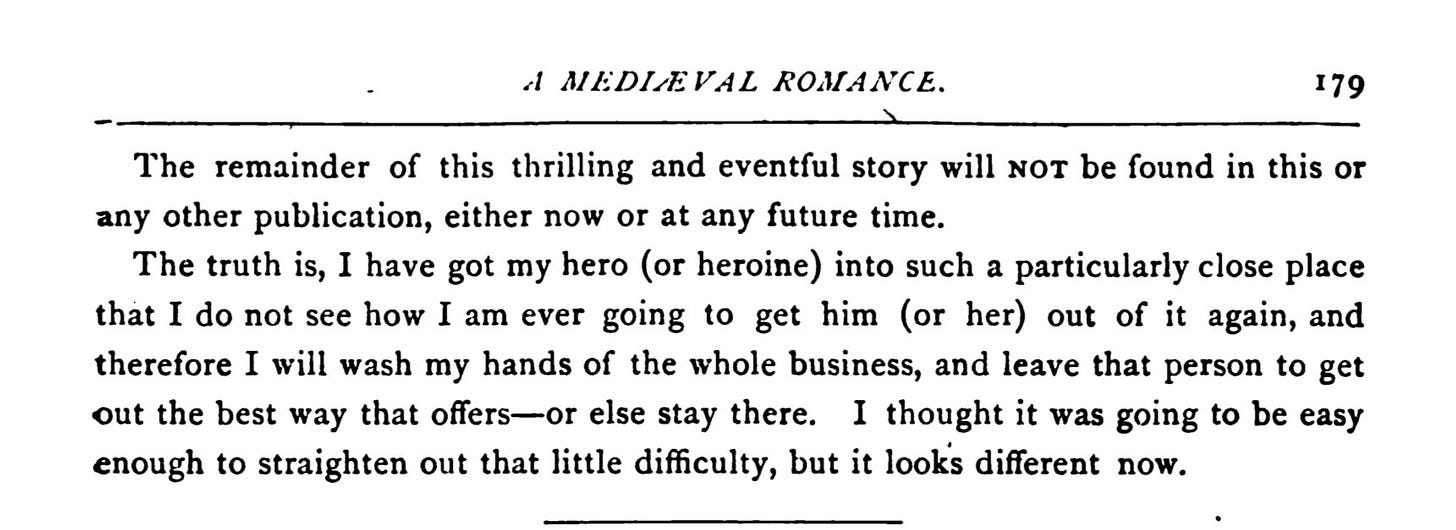Reflections on the Revolution in Conservatism
Plus: Rare praise for Thomas Jefferson, a rosy assessment of Schumann, and, well, a failure to make a proper ending...

In an essay in Fusion written as if intended to find its way to this “news”letter, I offer some reflections on the Freedom Conservative movement and the intra-conservative schism that seems — for the moment, at least — to have evicted it the halls of power.
The FreeCons held their first conference last month, eliciting a flurry of coverage — within certain wonky circles of Washington, D.C., at least. I added to the din:
Last month, Freedom Conservatism convened its first conference in Washington, D.C. The Freedom Conservative movement published its statement of principles in 2023, and since has gained hundreds of signatories, including myself. The statement identifies both the poison afflicting the American body politic and the remedy for it. “Authoritarianism is on the rise both at home and abroad,” the manifesto reads. “More and more people on the left and right reject the distinctive creed that made America great: that individual liberty is essential to the moral and physical strength of the nation.” Although many signatories usually support Republicans, statement stands athwart the current direction of the GOP — and many of its associated intellectuals — towards bigger, more muscular government, fiscal incontinence, and mercantilist economics.
The FreeCon conference boasted representatives from leading think tanks, including the Hoover Institution and the Manhattan Institute, and leading conservative thinkers such as George Will, Jonah Goldberg, and Charles Murray. Like any good gathering of conservatives, it intertwined wonkishness with humor, optimism with realism, and maths-and-graphs economics with political economy. The agenda and speaker lineup made one thing clear: conservatives must think hard not just about their philosophy but about the details of policy-making. In a social-media-driven political culture, in which vibes are replacing thought as the currency that buys the public’s approbation, a recommitment to seriousness and grown-up governance will do much good.
This gathering of the FreeCons drew responses from onlookers, both friendly and unfriendly. Despite their differences, admirers and critics seemed to agree that Freedom Conservatism must answer the question of whether it can rekindle the fire of liberty in the hearts and minds of the public and manifest its principles in tangible political victories. The answer to this question might have more to do with the next generation than with the present one. Can Freedom Conservatism bequeath to young conservatives a love of liberty and American republicanism? No less solid a foundation will withstand the appeal of bullying statism, which always tugs hard on the human heart.
As I explain, I am hopeful for Freedom Conservatism’s success as a political project. At root, it is because freedom conservatism is Americanism (more on that in the essay).
One thing more: The dreams of national conservatives who seek to extract meaning from the machinations of Washington, D.C. will not become manifest; they cannot. A man searching for meaning will find only emptiness in the ersatz religion of national politics or the holy wars waged on cable news and social media in its name. The good life will always be found at the local, not the national, level — in families, churches, and bowling leagues, not in Twitter bubbles or political rallies.
As the federal government extends its power over the citizenry, the citizens’ character will change. Far from finding new purpose, Americans will become less independent, less self-sufficient, less ambitious, less freedom-loving. Their capacity to pursue happiness and the American dream will fade. In short, they will become less American. Alexis de Tocqueville wrote that Frenchmen seeking to curb drinking would think it natural to petition their government — and do nothing else; Americans formed temperance societies. FreeCons seek to conserve America’s national culture; national conservatives, insofar as they advocate fortifying federal power, seek to Europeanize it.
I prefer an intellectual Monroe Doctrine of sorts on these matters.
Some Wisdom
This “news”letter has many bones to pick with Thomas Jefferson — big American bones, bigger than any bone found in Europe. Still, the third president in his inaugural elegantly explained both the mechanics and moral basis of democratic self-government, and for that he deserves credit.
Jefferson:
All, too, will bear in mind this sacred principle, that though the will of the majority is in all cases to prevail, that will to be rightful must be reasonable; that the minority possess their equal rights, which equal law must protect, and to violate would be oppression.
Majorities must, perforce, rule; pace many contemporary Frenchmen, whom Jefferson so loved, democratic legitimacy does not convey prudence or moral rectitude; and the abridgment of minority rights lies beyond the boundaries of the rightful authority of any majority.
Some Beauty
Sometimes, overplayed pieces of music deserve to be overplayed.
Some Humor
Caught in a self-made web, whose crushing restraints all writers have felt, Mark Twain ended his book A Medieval Romance thus (via Rabbi David Wolpe):
Sundry Links, &c.
National Review: “What American Lawmakers Should Learn from Europe’s Newest Tech-Policy Blunders”
National Review: “Abolish the Consumer Financial Protection Bureau”
Townhall: “The Path Forward for the Trump-Era Federal Trade Commission”
RealClearMarkets: “The Biden FTC Attacked Amazon With Help of a Chinese Competitor”
RealClearMarkets: “Bringing the SEC Back to the Basics of Good Governance”
Blogpost: “The Federal Trade Commission v. the First Amendment”
Blogpost: “Trump: The Weekend Tariff Warrior”


